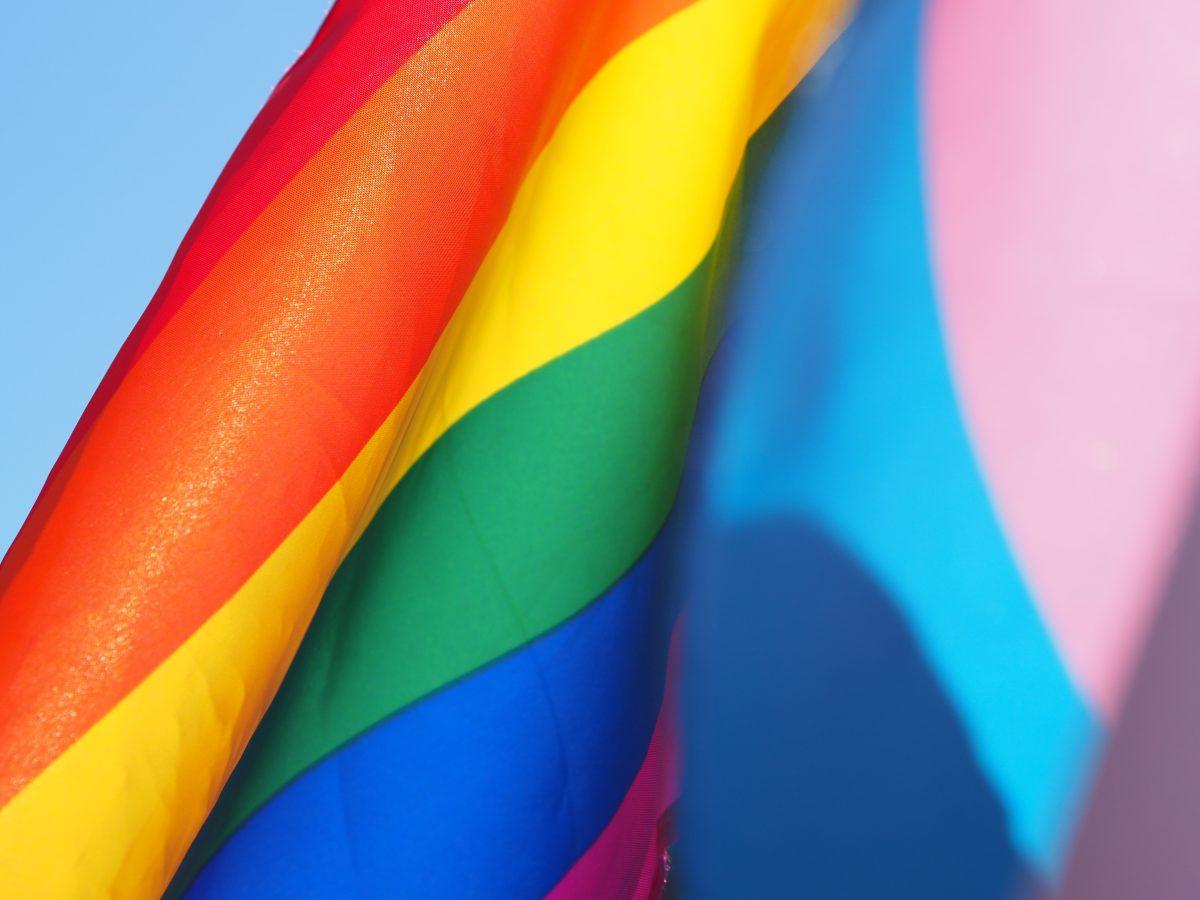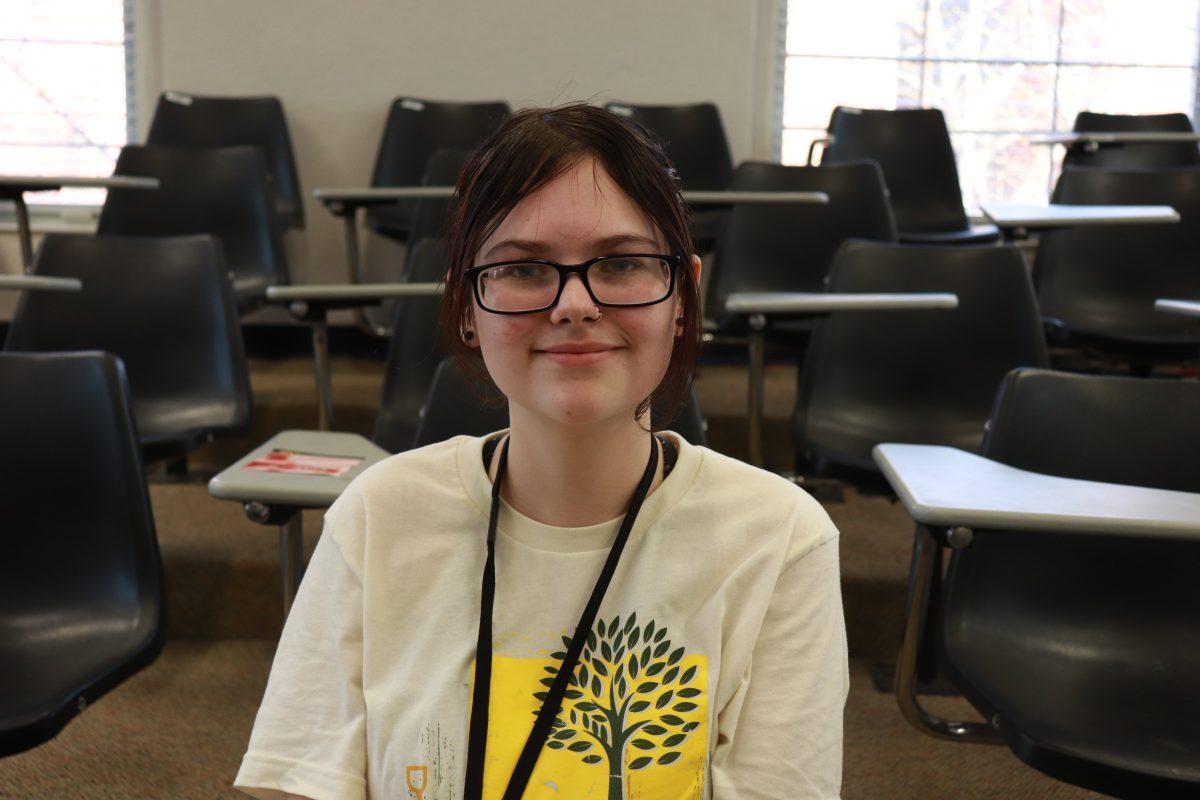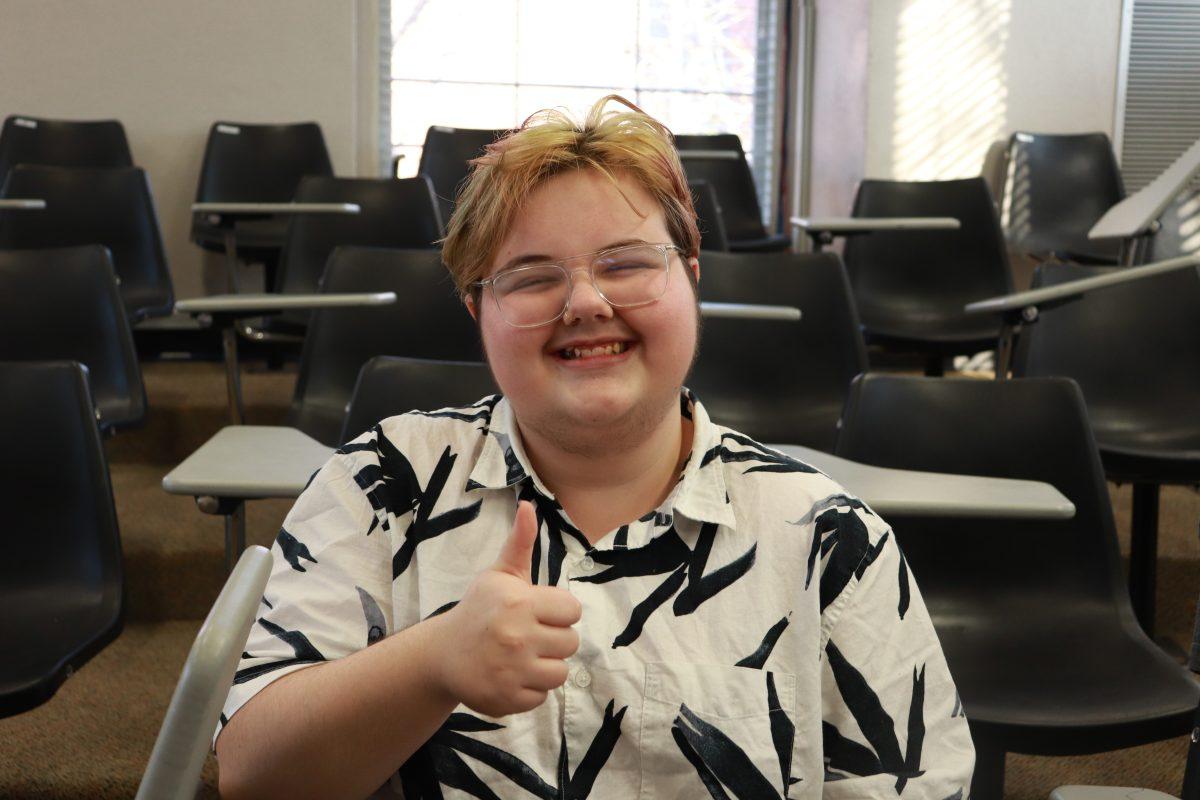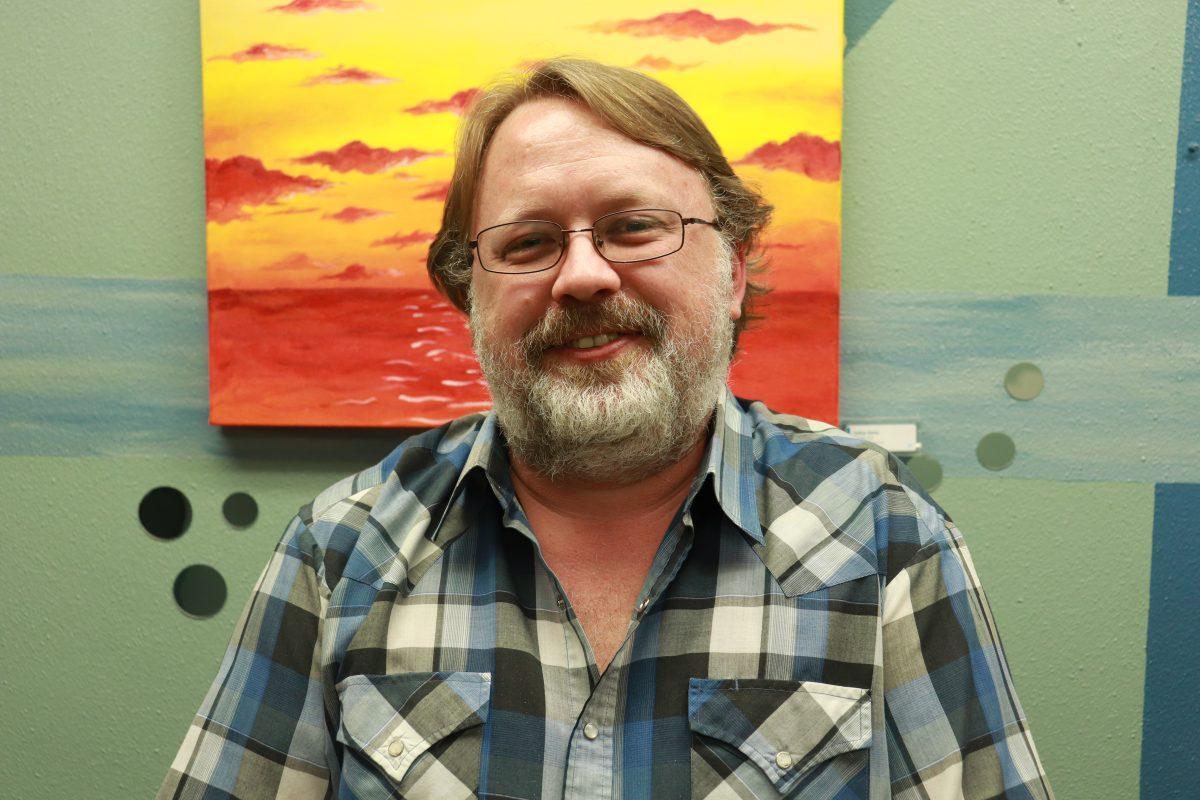
Almost everyone has a favorite character when they are consuming media. Oftentimes seeing a relatable aspect about a character can make them your favorite, especially for marginalized groups. Representation is important, and the presence or lack of representation impacts the viewing experience and can change how you perceive media. Members of the Pride of TJC shared their thoughts and experiences with representation of the LGBTQIA+ community in media.
“Representation gives me something familiar to look back on with some comfort, I know I can go to a character and be comfortable,” said Basil Horton, a freshman sign language major, who is a member of The Pride of TJC.
Horton believes having a character in which you see yourself in can really help young people come to terms with their own queerness.
“There’s that certain level of connection that you don’t really find with, like characters that you can’t really connect with on that certain level,” said Ales DeWeese, the president of The Pride of TJC.
DeWeese said they often feel disappointed when there is a lack of diversity in the media they enjoy, stating they can still enjoy it if there isn’t a queer character in it, but there is a definite let down that takes away from it, especially because the goal should be to be as diverse as possible.
“I wish there were more, because I find that my personal identity is a very small portion of the community. But I would love to see more in the future talk about the struggles and how good it is to be that identity and how it doesn’t have to be stigmatized,” DeWeese said.
DeWeese believes having writers who are a part of the queer community would be a good step in the right direction because a writer who has not lived through the experiences of the people they are attempting to portray often writes characters that fall flat or seem disingenuous to queer viewers.
The sentiment that writers outside of the queer community do not get the nuance of being a queer person is a common theme among members of the LGBTQIA+ community.
“I think at the moment, we’re sort of in this dichotomy of it’s either a super negative representation, or it’s really positive. But either way, it just creates this sort of almost political fighting point for people to create with queer identities that are not really controversial in the first place,” said Wren LaPlant, the vice president of The Pride of TJC.
LaPlant states that queer characters are often portrayed in an overtly sexual or flamboyant light where their entire personality is one thing or they are often killed off in media at the hands of suicide or depression. Glee was given as an example for both tropes with the characters Kurt Hummel, whose entire personality is being gay, and Dave Karofsky, who attempts to kill himself after being outed, but survives.
“I think that seeing queer people just be happy is one of the biggest pieces of resistance that we can show in society, like queer joy equals resistance is my life motto,” LaPlant said.
Queer people in media are rarely depicted as an average person, they are often put in a box, LaPlant said. To be happy as a queer person is a sort of rebellion against those who do not portray them as such and media and to the political forces that wish to see them erased, according to LaPlant.
“It made younger me feel really lost with all the feelings that I was having, because I had never seen anybody like me on the screen,” LaPlant said.
The lack of representation caused an extreme feeling of isolation within LaPlant that led to depression and a negative outlook on their identity, because they felt invisible to others around them and to those writing the media that they were consuming at the time.
Another Pride of TJC member pointed out isolation isn’t the only thing to worry about when it comes to a lack of LGBTQIA+ representation in media.
“It’s even been statistically shown that when you grow up in a non-diverse environment, you’re way more likely to believe bigoted things. That’s actually part of the reason representation matters,” said Phoenix Harris, a freshman sociology major.
Harris believes when a person is not exposed to people who are different to them, they are less likely to recognize them as people or see them as equals, sometimes even being somewhat weirded out by their existence.
“I think the main issue now is the ways in which we depict them mainly with regards to normalization. It’s now OK to show a queer character on television. But it’s still a huge uphill battle to depict them as just normal people. It’s either their queerness is their whole identity, or it’s basically not mentioned at all,” Harris said.
The field of psychology can help explain why members of The Pride of TJC feel this way and how the human mind processes inclusion and exclusion.
“For somebody to have that representation is such a big deal and it could be something as small as a single character in a TV show, but that makes a difference, it makes a huge difference. We enjoy seeing people that look like us do things, and it makes us feel seen too,” said Cory Howard, a TJC psychology professor who also serves as the adviser for The Pride of TJC.
When a viewer is presented with a character that looks like them or behaves like them in some form or fashion, the viewer is able to see themselves within that character and have their experiences validated as an individual and as a part of a larger group that they belong to, according to Howard.
“Another thing that it does is it affects how everyone treats you. When we’re talking about representation in media, you know, if you come from somewhere that has no diversity, the only diversity you might see is on TV, or in movies and things like that. And so you’re only getting that stereotyped view of someone and that’s going to affect how you interact with a person of that race, or of that sexual orientation, or whatever it is when you get to meet them for the first time, because you’ve never been around anyone else,” Howard said.
Howard states that only being exposed to an inaccurate example of a group of people can lead those without a better understanding to assume that it is actually an accurate representation of that group. This can cause problems for both the person and the group they are unfamiliar with, as the person might live their life treating that group of people the opposite way that they want to be treated and the group of people might feel as though the stereotypes that are placed upon them is all they are.
“One thing we talk about in social psychology is just ways to try to overcome prejudice is just intergroup contact, just being around people of different races, different nationalities, things like that, you kind of just eventually realize we’re all people,” Howard said.
Combatting misrepresentation comes down to knowing the people being misrepresented, Howard said. Understanding comes from experience and you can only experience the struggles of other groups of people by talking to them and figuring out how the stereotypes placed upon them through bad media representation are inaccurate according to Howard.
The Pride of TJC meets at 5 p.m. every Monday in the Jenkins Building, Room 219. For more information, contact
@prideoftjc on Instagram or @[email protected].
 Alex DeWeese, the president of The Pride of TJC, hopes The Pride of TJC is a safe space for queer students. DeWeese takes any opportunity to find new members.
Alex DeWeese, the president of The Pride of TJC, hopes The Pride of TJC is a safe space for queer students. DeWeese takes any opportunity to find new members.
 Wren LaPlant, the vice president of The Pride of TJC, tries to be outspoken about being in the LGBTQIA+ community. LaPlant hopes other people can eventually be confident too.
Wren LaPlant, the vice president of The Pride of TJC, tries to be outspoken about being in the LGBTQIA+ community. LaPlant hopes other people can eventually be confident too.
 Professor Cory Howard strives to continuously be a kinder person. He often tells his classes about the importance of being understanding toward others.
Professor Cory Howard strives to continuously be a kinder person. He often tells his classes about the importance of being understanding toward others.